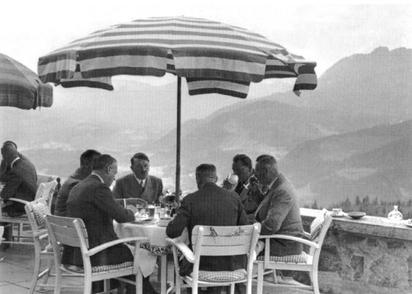As the world watched with bated breath, the events of August 22, 1939, revealed a world bracing for conflict. Diplomatic tensions deepened, military preparations intensified, and leadership decisions underscored the grim inevitability of war. From parliamentary debates in London to chilling speeches in Germany, this day marked a critical step toward the eruption of World War II.
London, England: A Divided Leadership Prepares
In the halls of British power, the urgency of the moment was unmistakable. Members of Parliament were summoned to London for a special session scheduled for Thursday, while the Cabinet convened to deliberate the rapidly evolving crisis. At the center of these discussions was the shocking news of the German-Soviet Non-Aggression Pact—a geopolitical bombshell that had upended traditional alliances.
The response within the British government was anything but unified. Secretary of State for Foreign Affairs, Lord Halifax, dismissed the pact’s significance, downplaying its potential impact on Britain’s position in Europe. However, Prime Minister Neville Chamberlain took a far more resolute tone. In a statement that underscored Britain’s commitment, Chamberlain reaffirmed the nation’s unwavering support for Poland. The Prime Minister emphasized that Britain’s obligations to Poland were non-negotiable, regardless of the German-Soviet Agreement.
These divergent views within the British leadership mirrored the uncertainty and debate gripping the nation. While some sought to minimize the implications of the pact, others recognized the urgent need to prepare for the worst. Chamberlain’s assertive stance sent a clear message to both allies and adversaries: Britain would honor its commitments, even in the face of an escalating threat.
Obersalzberg, Germany: Hitler’s Chilling Vision
While Britain deliberated, Adolf Hitler solidified his plans with terrifying clarity. At his mountain retreat in Obersalzberg, Hitler convened a meeting with his top military commanders and delivered what would later be known as the Obersalzberg Speech.
In this address, Hitler laid out his plans for the invasion of Poland, using fabricated propaganda as a justification for aggression. Beyond military strategy, Hitler’s speech revealed the horrifying ideological underpinnings of his ambitions. He openly discussed the extermination of the Polish people and the Jewish population, leaving no doubt about the genocidal intentions that would later define the Nazi regime.
Hitler exuded confidence, deriding British Prime Minister Neville Chamberlain and French Premier Édouard Daladier as weak and insignificant. This dismissive attitude toward the Western democracies reinforced his belief that neither Britain nor France would interfere with his plans. The speech galvanized the German military leadership, setting the stage for the catastrophic events that would soon follow.
Wilhelmshaven, Germany: Germany’s Naval Might Mobilizes
Germany’s naval forces were also on the move. At Wilhelmshaven, the German submarine U-30, under the command of Oberleutnant Fritz-Julius Lemp, departed for its war station in the Atlantic Ocean. This deployment was part of a larger mobilization effort, with 20 additional U-boats setting sail during the same week.
The departure of these submarines signaled the beginning of a new phase in Germany’s naval strategy. The U-boats were tasked with disrupting Allied shipping and asserting dominance in the Atlantic, a campaign that would later be known as the Battle of the Atlantic. These silent predators represented a formidable threat, capable of devastating Allied supply lines and reshaping the dynamics of maritime warfare.
For the crews aboard these vessels, the mission was both a technical challenge and a psychological test. They were venturing into the vast and unforgiving ocean, armed with the knowledge that their actions would play a pivotal role in Germany’s war effort.
A Day That Echoed Across the World
